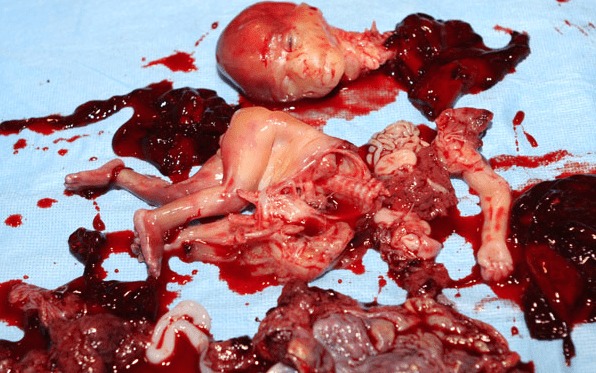This has always been an interesting philosophical and cultural question: After World War II, in general, why did German society accept responsibility for Nazi atrocities while Japanese society did not accept responsibility for Japanese atrocities? (The Asian Holocaust claimed at least twice as many lives as the Nazi Holocaust.) There were several cultural, logistical, and strategic reasons.
From a cultural perspective, the Japanese militarists were typically members of Japan’s ruling class of powerful political and business elites. They were often the descendants of the warrior class of Samurais, which dominated Japan for hundreds of years prior to the Meiji Restoration during the mid-19th Century. As members of the ruling class, the militarists controlled the Japanese Government’s policies, including its aggressive foreign policy.
Given the strong social hierarchy that existed then (and still exists to a lesser degree today), the militarists were positioned within Japanese society as the vicars of the emperor; and the emperor was nominally considered a living god. Under these cultural conditions, it was virtually impossible for the general public or the rank-and-file military personnel to resist the orders from the Japanese high officials. This made it very difficult for the American and Japanese administrators of war crimes trials to legitimately hold lower-ranking Japanese responsible for carrying out the orders of their superiors.
From a logistical perspective, the Japanese war crimes trials were challenging for several reasons. There was no central political party per se that was responsible like there was in Nazi Germany. Additionally, the racially prejudicial ideology that fueled the militarist foreign policy had been deeply embedded within Japanese culture for generations and was amplified by widespread propaganda campaigns throughout WWII (Dower 1986).
As a result, virtually the entire Japanese population mutated into an army of citizen soldiers, converting their homes and business facilities into war-making factories. This made it difficult to distinguish between citizens who were willing participants in criminal activities and those who were coerced by direct force or indirect intimidation and shame-based peer pressure. In reality, all these factors made it very difficult to expand the scope of the Japanese war crimes trials without transforming large segments of the Japanese population into war criminals.
From a strategic perspective, it was more difficult to compel the Japanese to honestly investigate their war crimes because U.S. Government officials were trying to establish more peaceful diplomatic and trade relations with Japan. The U.S. Government was also eager to establish military bases in Japan to outmaneuver Stalin as the Cold War was heating up. Virtually everybody knew the Japanese emperor was ultimately responsible for the actions of the Japanese Government as the living god-head of state, but the Japanese were still very supportive of their beloved emperor. This made it difficult to hold the emperor accountable without turning a large portion of the Japanese population against the Americans. These dynamics reduced the strategic incentives for U.S. officials to pursue convictions of many Japanese war criminals, including the emperor.
The overall lack of accountability and introspection among Japanese officials after World War II resulted in a systematic whitewashing of their schoolbooks. Japan’s role in the war and the atrocities committed by the Japanese Government during WWII were virtually completely erased for generations. This caused generations of Japanese to be unaware of their government’s sordid history. Of course, this is not exclusive to the Japanese Government; readers of my articles and books know that I’m critical of any government that attempts to whitewash their crimes against humanity. (For example, the U.S. in WWII.)
In contrast, the Germans immediately recognized the Nazi Government’s atrocities and were sincerely engaged in a widespread effort to acknowledge the truth and reconcile the fundamental cultural, economic, and institutional problems that caused the Nazi Holocaust. For example, during and after the Nuremberg War Crimes Trials, thousands of Germans were forced to take sobering tours of the death camps to etch the history of Nazi atrocities into Germany’s permanent collective memory.
Germany’s spirit of contrition is still observable today in many ways, including the way that the German Government and Germans in general are highly averse to any form of aggression in their foreign policies. They also have relatively strong institutional resistance to strong right-leaning ideological influences. And the content of German primary school history books typically includes vivid descriptions of WWII and Nazi atrocities. Clearly, the German Government’s response to Nazi atrocities was very different than the Japanese Government’s response to its atrocities.
Nevertheless, there were still war crimes trials in Japan, but they were minimal in their scope and impact compared to the Nuremberg Trials in Germany. Tojo (Prime Minister of Japan during most of World War II) was one of the few high-ranking officials in Japan to be tried and convicted. The story of his demise is interesting: Just as the American soldiers arrived at his home to arrest him, Tojo tried to commit suicide. While he was bleeding, Tojo said:
I am very sorry it is taking me so long to die. The Greater East Asia War was justified and righteous. I am very sorry for the nation and all the races of the Greater Asiatic powers. I wait for the righteous judgment of history. I wished to commit suicide but sometimes that fails. (Toland 1970)
References:
- Dower, J. W. 1986. War Without Mercy: Race and Power in the Pacific War. New York: Pantheon Books.
- Lyons, M. J. 2016. World War II: A short history. London: Routledge.
- Toland, John 1970. The Rising Sun: The Decline and Fall of the Japanese Empire, 1936–1945. New York: Random House.
About Ferris Eanfar
Ferris Eanfar has over 20 years of experience in technical, financial, media, and government intelligence environments. He has written dozens of articles and several books in the fields of Economics, Crypto-Economics, and International Political Economy, including Broken Capitalism: This Is How We Fix It and GINI: Capitalism, Cryptocurrencies & the Battle for Human Rights and the Global Governance Scorecard. Ferris is a cofounder of the Gini Foundation, which builds unique cryptocurrency systems to protect human rights, among other benefits; and the CEO of the AngelPay Foundation, a nonprofit financial services company with a mission to “return wealth and power to the creators of value.” To learn more about Ferris, please visit the About Ferris page.Visit Ferris on:

 Gini Website Coming Soon. We (
Gini Website Coming Soon. We (
